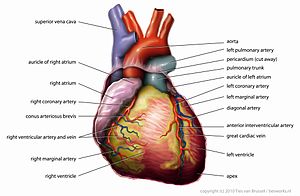Did you know that reducing depression may decrease heart disease? A new study found that being happy, enthusiastic and positive can decrease risk of cardiovascular diseases. Previous studies had found that depression, anger and hostility are important risk factors contributing to heart attack and stroke. We have a series of articles that discuss behavioral health prevention and medical diseases.

Reducing Depression May Decrease Heart Disease
According to the study published in the European Heart Journal, people who have high levels of anxiety and depression are at the highest risk of experiencing heart disorders. The article reports that happy individuals are at a 22 percent lower risk of developing the condition as they are less stressed and are able to move on from upsetting experiences. Scientists believe happiness can also reduce the risk of heart disease through reducing a number of critical hormones.
While the study was not able to prove happiness is protective, scientists stressed that individuals should enjoy themselves in order to lower their risk of heart disease. “Essentially spending a few minutes each day truly relaxed and enjoying yourself is certainly good for your mental health and may improve your physical health as well,” said lead researcher Karina W. Davidson.
NAMCP has partnered with us to write a five-part series on how behavioral health can prevent or reduce risk from a number of medical illnesses. The mission of the NAMCP is to enhance the ability of practicing physicians and other health care professionals through accredited continuing medical education programs, research and communication, to succeed in managed care environments and integrated delivery systems.
- The NAMCP was founded in 1991 to serve the interests and needs of physicians working in any form of managed health care. NAMCP is a non-profit association run by physicians for physicians.
- Since physicians affect 85% of the expense side in health care, they should take a proactive role in developing the best delivery system for patients in managed health care, thereby increasing quality, reducing costs and improving practice performance and clinical outcomes.
- Physician-directed managed health care is important for all providers and patients. Today’s health care expenses exceed one trillion dollars; we believe physicians and patients should be educated about all aspects of managed health care in order to control costs and deliver high quality health care. New terms such as disease management and demand management will benefit patients if both physicians and patients understand and participate with these systems in a proactive manner. For any system to work, we must have educated patients as well as physicians, in order to make appropriate decisions in an examination room





